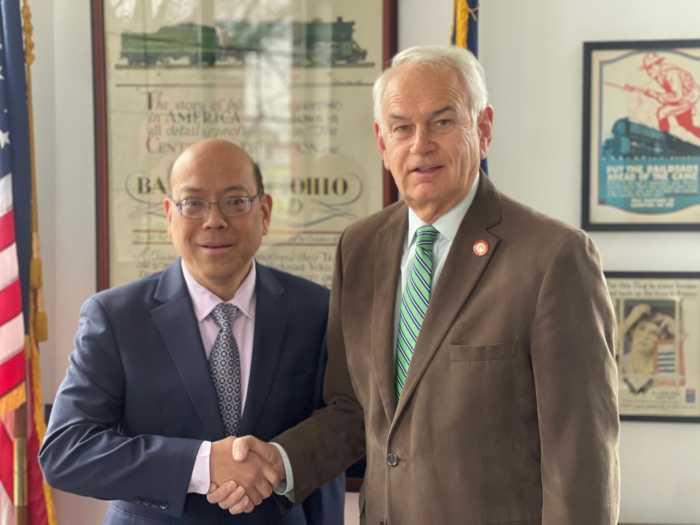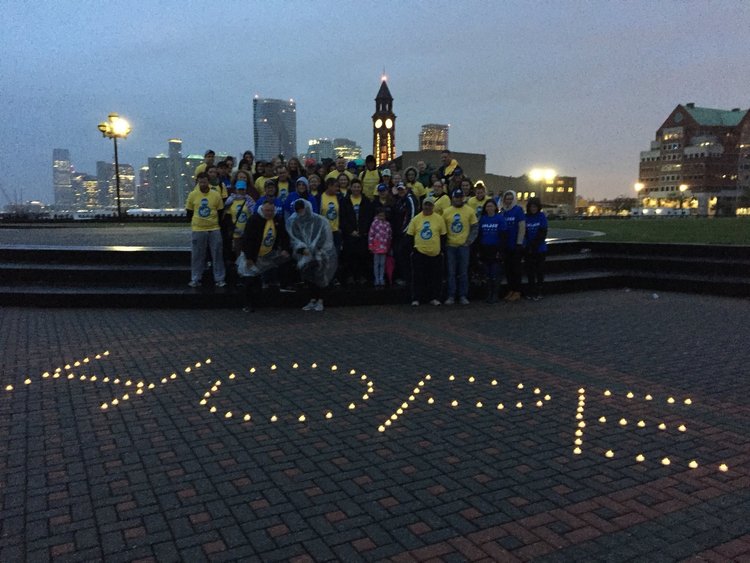By Michael Morton
When psychologist Linda Daniels of Murray Hill heard the boom from the plane slamming into the building that day in September, she looked out the window of her corner office on the 62nd floor of the North Tower and was shocked by the sight.
“I saw all this debris come from above me,” said Daniels, who at the time worked for the medical services department of the Port Authority and who now runs a private practice out of an office in Bayside while serving as a clinical faculty member at Long Island Jewish Medical Center in New Hyde Park.
Daniels escaped from the World Trade Center on Sept. 11, but 70 of her co-workers did not, and in all more than 2,700 people died in the terrorist attacks that destroyed the two buildings.
Now in a new book entitled “Healing Journeys” published earlier this year by New Horizon Press, Daniels has written about strategies for dealing with trauma. Her advice is based on her own experience at the World Trade Center and from counseling people who survived Sept. 11 and other disasters.
After she heard the first plane hit the floors above her and saw the destruction raining down, Daniels and other workers from her office fled into the stairwell, which quickly filled up. At the 40th floor, she saw a woman sitting down, apparently too distraught to move.
“I went up to this woman and gently rubbed her back and told her it would be all right,” said Daniels, who specializes in trauma at her practice.
With the woman’s co-worker, they guided her to the ground floor and left the building. Daniels then tried to find emergency personnel so she could help them, but the South Tower started to collapse and she ran. She eventually walked across the Queensboro Bridge into Queens and then hopped on a bus, thanks to a stranger who gave her his MetroCard.
Back at her Murray Hill home, she sat in a daze for 20 minutes and then checked her phone messages. One was from her friend, hoping that Daniels had not gone to work that day. Another was from her mother.
“I heard my mother scream, ‘She’s not there! She’s not there!’” Daniels said.
After calling friends and loved ones to say she was all right, Daniels watched the images of the planes crashing into the towers on television over and over. The next day she went to JFK airport to set up a trauma center for Port Authority employees.
“I was at an airport — if that wasn’t a trigger I don’t what was,” Daniels said of the environmental factors that can cause flashbacks. While the airport terminal itself did not affect her mentally, she said the sight of planes in the sky took her mind back to the towers being hit. She also had nightmares and felt the fear, anxiety and uncertainty that haunts many trauma survivors, she said.
With her background, however, Daniels recognized her symptoms and knew she needed to seek therapy to deal with the experience. “I wish I could have been in denial,” she said recently with a laugh. “I don’t think I had the luxury of denial.”
Daniels worked through her fear and anxiety with her mentor, one of her former professors. One month after the attack she started seeing patients again and at the four-month mark she hung up a photo of the towers in her office, a symbol of her acceptance of the tragedy.
“It was acknowledgment both of the horrific end of the towers and of the positive memories I had from that building,” Daniels said. “No one can really take them away.”
After spending months with her patients, some of them suggested Daniels write a book to help other trauma survivors. “They thought I had something to offer other people,” she said.
Though the first-time author said writing the book was difficult emotionally, it was also therapeutic. “I saw how survivors were overcoming their symptoms and showing such courage,” Daniels said.
Today Daniels no longer has nightmares or flashbacks, but that does not guarantee she will not in the future, she said. In her book, she said she advises survivors that trauma can lead to self-growth and that no one should feel guilty if they remain affected by Sept. 11 or other calamitous events.
“Many 9/11 survivors are still feeling symptoms,” Daniels said. “It doesn’t mean they’re not recovering.”
Reach reporter Michael Morton by e-mail at news@timesledger.com or by calling 718-229-0300, Ext. 154.
































